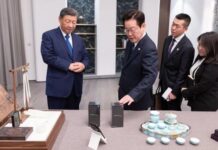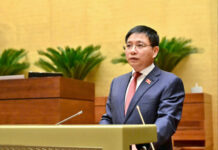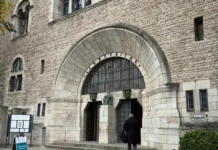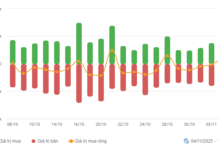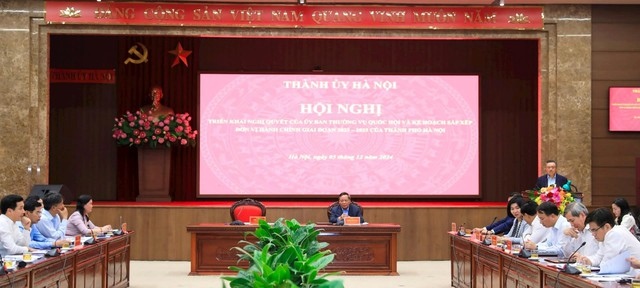On the afternoon of the 5th of December, the Hanoi Party Committee organized a conference to deploy the Resolution of the National Assembly’s Standing Committee and the city’s plan for the arrangement of administrative units for the period of 2023-2025.
At the conference, Director of the Department of Home Affairs Tran Dinh Canh promulgated Resolution No. 1286 of the National Assembly’s Standing Committee on the arrangement of 109 administrative units at the communal level in Hanoi, for the period of 2023-2025; which will take effect from January 1, 2025. The Resolution stipulates the arrangement of 109 communal-level administrative units to form 56 new communal-level administrative units in 20 districts, suburban districts, and towns of Hanoi.
From the effective date of the Resolution, Hanoi will have 30 administrative units at the district level, including: 17 rural districts, 12 urban districts, and 1 town. Among them are 526 administrative units at the commune-ward-town level, consisting of 345 communes, 160 wards, and 21 towns (with no change in the number of administrative units at the district level, but a reduction of 53 administrative units at the commune level compared to the present).
Regarding finances and public assets in the implementation of administrative unit arrangement, Director of the Department of Finance Nguyen Xuan Luu stated that, among the 109 communal-level office buildings subject to arrangement, according to the handling scheme proposed by the districts, suburban districts, and towns, 99 office buildings will be retained for continued use as offices of the new administrative units or converted into community houses, village cultural houses, or neighborhood cultural houses, to be managed by the People’s Committees of the new communes.
Six office buildings will be transferred to other agencies for use as schools or offices of the Commune-level Police; four office buildings will be transferred to the district-level People’s Committees.
Director of the Department of Finance also emphasized the content of not collecting any type of fee when carrying out the conversion of documents related to the arrangement of administrative units in accordance with the spirit of the Resolution of the National Assembly’s Standing Committee.
Regarding residence management and updating citizen information in the national database on population, Director of Hanoi Police, Lieutenant General Nguyen Hai Trung, said that citizen information will be transferred by the data system to the new administrative units in parallel with the completion of paper dossiers.
Providing clarification on issues related to personnel work in administrative units subject to arrangement, Director of the Department of Home Affairs Tran Dinh Canh, said that the Department of Home Affairs will provide guidance on transferring commune-level officials and civil servants to state civil servants.
“For the cases of leaders and heads of units, the localities are requested to prioritize the implementation of salary and rank arrangements for Party officials so that we can make decisions before December 31. Later, if the officials are transferred to deputy positions, they will still be civil servants,” said Tran Dinh Canh.
Regarding the transfer of officials from wards to districts or from districts to units of the industry, Mr. Canh said that they do not receive transfers from other provinces, but within the city, it is implemented normally, especially with a high priority given to districts, suburban districts, towns, communes, wards, and townships that are arranging administrative units.
Speaking at the conference, Mr. Nguyen Van Phong, Permanent Deputy Secretary of the Hanoi Party Committee, requested that localities focus their leadership and direction in a proactive spirit; continue to do well in ideological work and grasp social opinions; and prepare for party congresses at all levels in the administrative units subject to arrangement. In particular, attention should be paid to the arrangement of personnel in accordance with the roadmap, with consistent ideological work before and after.
Nguyen Huong

